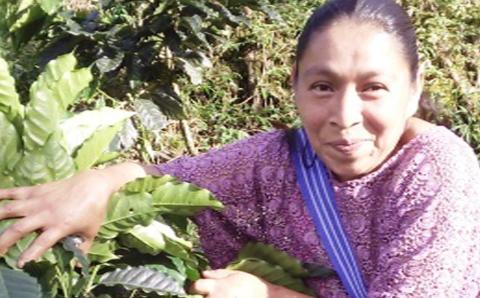“The sounds and sights of that day in September will linger a long time.”
“I don’t think we mentioned anything about the genocide.”
The quotes above are not, as you might assume, about the World Trade Center catastrophe or a reaction to the mass killings in Rwanda two decades ago. Rather, they are from “The Disturbances,” a recently released video produced by the Baptist Center for Ethics about the role Christian missionaries and Nigerian pastors played in saving lives during the slaughter of 30,000 mainly Igbo civilians in Nigeria in 1966.
The video describes how North American missionaries, many at Hillcrest School and at the Theological College of Northern Nigeria, faced the atrocities.
The video includes accounts—some by former CRC missionaries with names like Kiekover, Scholten, and Baas—of their experiences. One missionary wrote at the time of seeing “blood-soaked men pleading for protection on their hands and knees spontaneously reciting the Lord’s Prayer.”
Others, in present-day interviews, recounted the danger faced at Hillcrest, particularly hearing the angry chants of mobs during the night and those fleeing for their lives running onto campus—even into the rooms where classes were being held.
Their account told now, 50 years later, describes providing sanctuary to those fleeing for their lives, tending to the injured even while mobs hovered in the background, and helping those in danger escape by trucks, train, and aircraft. One after another spoke of their desire to model the faith, even under the most dire of circumstances.
One told of college principal Harry Boer’s decision to keep the lights on at the theological college. Many people had urged him to turn off the floodlights that illuminated the chapel’s spire so as to avoid drawing attention to the college while angry mobs were on the loose. Boer kept the lights on, saying they should “receive anyone who might come to us for refuge.” A light shining in the darkness.
As I viewed the video, missionary after missionary said that although the conflict was between Christians from the south and east of Nigeria, and Muslims from the north, it wasn’t about religious differences. Rather, it was fueled by a mix of inequality, ethnicity, and economics.
What can we learn from these missionaries of 50 years past? The call to carry the light of Jesus into all the world has always involved both Word and deed. These missionaries in Jos, Nigeria—some Christian Reformed, others from a range of other denominations—were faithful to their call. They shared the good news and lived out their faith, seeking to understand complex situations while providing refuge and caring for those in need even in the most desperate of circumstances.
The call to missions requires stepping into religious intersections, sharing the good news with and caring for people of differing faiths—or of no faith at all. These missionaries resisted the temptation to oversimplify the conflict into a matter of religious differences. They were adept at interacting within the differing religious contexts surrounding them.
And what about us? It’s really the same call. To share the good news. To open our doors and our hearts to those in need. To move faithfully within the increasing plurality of religious faiths in our cities, towns, and rural communities.
Sometimes our call is lived out in ordinary ways, day after day. At other times, tensions are high and crises ensue. But the call is the same: “And whatever you do, whether in word or deed, do it all in the name of the Lord Jesus, giving thanks to God the Father through him” (Col. 3:17).
For more information about The Disturbances documentary DVD, visit thedisturbances.com.
About the Author
Steven Timmermans served as the executive director of the Christian Reformed Church in North America from 2014 to 2020.
Steven Timmermans se desempeñó como director ejecutivo de la Iglesia Cristiana Reformada en América del Norte de 2014 a 2020.
Steven Timmermans는 2014 년부터 2020 년까지 북미에서 기독교 개혁 교회의 집행 이사로 재직했습니다.









